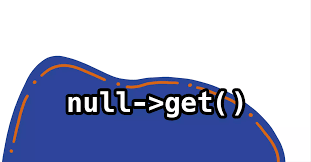Introduction
If you’re a developer or a website administrator, encountering error messages is part of the journey. One such error is “Error Call to a Member Functionget collectionparentid() on null”. This error often appears in systems using PHP, especially in content management systems (CMS) or e-commerce platforms like Magento. The error can disrupt functionality and may even stop certain sections of your site from working properly.
This article will explain the root causes of this error, ways to resolve it, and provide steps to prevent it in the future.
Read Archivebate

What Does “Call to a Member Function getCollectionParentId() on Null” Mean?
In PHP, when you see an error like “Call to a Member Function getCollectionParentId() on null,” it means that the code is trying to call a function on a variable that is null. This error typically arises because the variable, expected to hold an object, is empty or undefined at the point of function call.
Causes of the Error
To fix the error, it’s important to understand its root causes. Here are some of the common reasons why you might encounter this issue:
1. Undefined Variables
- Sometimes, the variable that should contain an object is not set correctly, causing the function call to fail.
2. Database Issues
- If there is missing data in the database, especially when working with content management systems, this error may arise.
3. Code Misconfiguration
- Certain codes or configurations, if set incorrectly, can lead to a null value where an object is expected.
4. Compatibility Issues
- In some cases, incompatible plugins, modules, or extensions could conflict with your existing code and cause this error.
5. Object-Related Issues
- When an object is not created correctly or lacks the necessary parameters, the getCollectionParentId() function call fails.
How to Identify the Cause of the Error
Identifying the cause is essential for efficient troubleshooting. Follow these steps to find out where the error is coming from:
Also check Ramsey Classroom
1. Check Error Logs
- The first step is to check your error logs. Most CMS and web servers keep logs of errors. Look for logs in the var/log or storage/logs directory.
2. Debugging Tools
- Use debugging tools to trace where the null value is assigned. In PHP, you can use functions like var_dump or print_r to display the value of variables.
3. Check Database
- If the error is database-related, ensure that all the required tables and fields have data. Use SQL queries to check for any missing entries.
4. Review Codebase
- Look at the line where the error occurs and analyze any objects or variables involved. Make sure they are correctly assigned and initialized.
Solutions to Fix the Error
Below are some common ways to fix this error. Apply these steps according to the specific issue identified in your code.
1. Initialize the Object Properly
- If an object is null, it means that it was not initialized correctly. Ensure that your code correctly initializes the variable before using it.
2. Verify Variable Assignment
- Check that the variable in question is assigned the expected data before calling the getCollectionParentId() function.
3. Use Conditionals
- Adding a conditional statement before the function call can help avoid calling a function on a null object.
4. Update or Reconfigure Plugins/Extensions
- If the error is related to third-party plugins, try updating or reconfiguring them to make sure they work correctly with your code.
5. Ensure Database Integrity
- If your database is missing data, add the necessary records. Make sure to back up your database before making any changes.

Preventing the Error in Future Projects
To avoid this issue in future projects, consider the following best practices:
Visit BetterThisWorld.com
1. Follow Coding Standards
- Following coding standards and practices, especially in PHP, helps ensure that variables and objects are consistently defined.
2. Use Error Handling
- Implement error handling throughout your code to catch unexpected issues before they cause a crash.
3. Test Regularly
- Regular testing and validation of your code can help identify issues early.
4. Perform Code Reviews
- Code reviews can help catch potential errors that a single developer might miss.
5. Database Management
- Ensure that your database is regularly maintained, with all necessary data intact.
Common Scenarios Where This Error Occurs
1. Magento Platforms
- Magento often uses functions to retrieve collection data, and a misconfiguration in custom modules can cause this error.
2. CMS Plugins
- In content management systems like WordPress, certain plugins can conflict with code, resulting in null values where data is expected.
3. Custom PHP Applications
- For custom-built PHP applications, poor error handling or initialization can lead to such issues.
Conclusion
The “Call to a Member Function getCollectionParentId() on null” error can be frustrating, but by understanding its causes and solutions, you can quickly resolve it. Make sure to debug carefully, verify your variables and objects, and maintain your code to prevent such errors in the future. By following these best practices, you’ll reduce the chances of encountering this error and improve the stability of your application.

FAQs
Q1: What is the “getCollectionParentId” function?
Developers commonly use this PHP function to retrieve the parent ID of a collection object, often in CMS or e-commerce platform code.
Q2: Why does this error only appear sometimes?
The error appears when the variable used in getCollectionParentId() is null. If this variable has a value, the function call works without error.
Q3: Can updating PHP help resolve this issue?
Updating PHP alone won’t fix this issue. However, if you are using an outdated version of PHP that lacks error handling improvements, an update might help.
Q4: What should I do if this error appears in Magento?
Ensure that all modules and plugins are compatible with your Magento version and configured correctly.
Q5: Is this error related to database issues?
Sometimes. If your code retrieves data from a database and the data is missing, this error could appear due to the lack of expected data.
